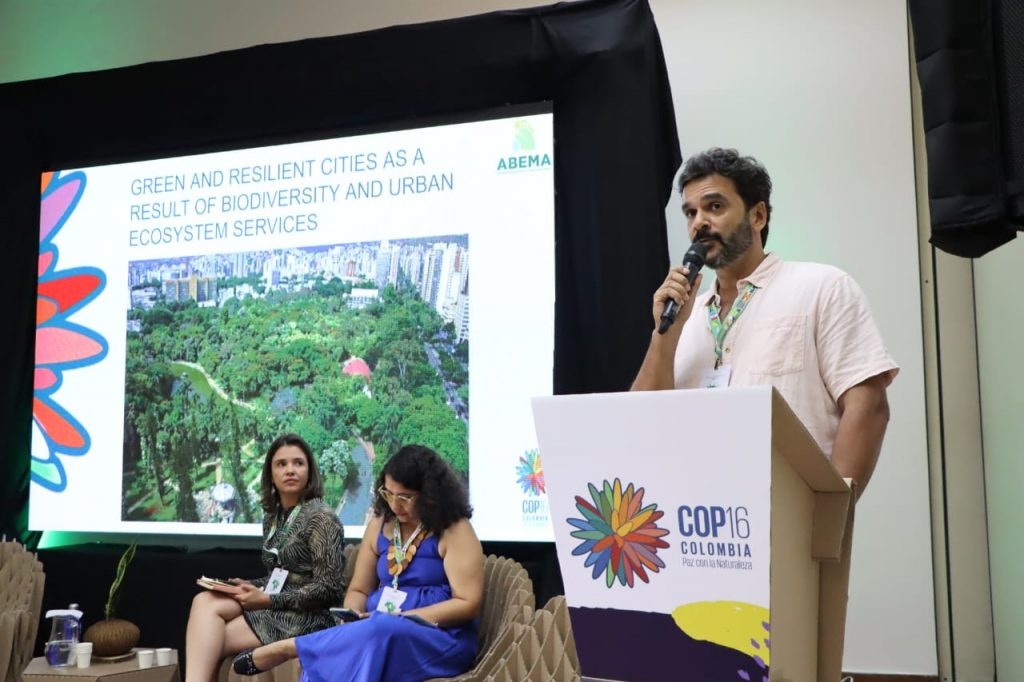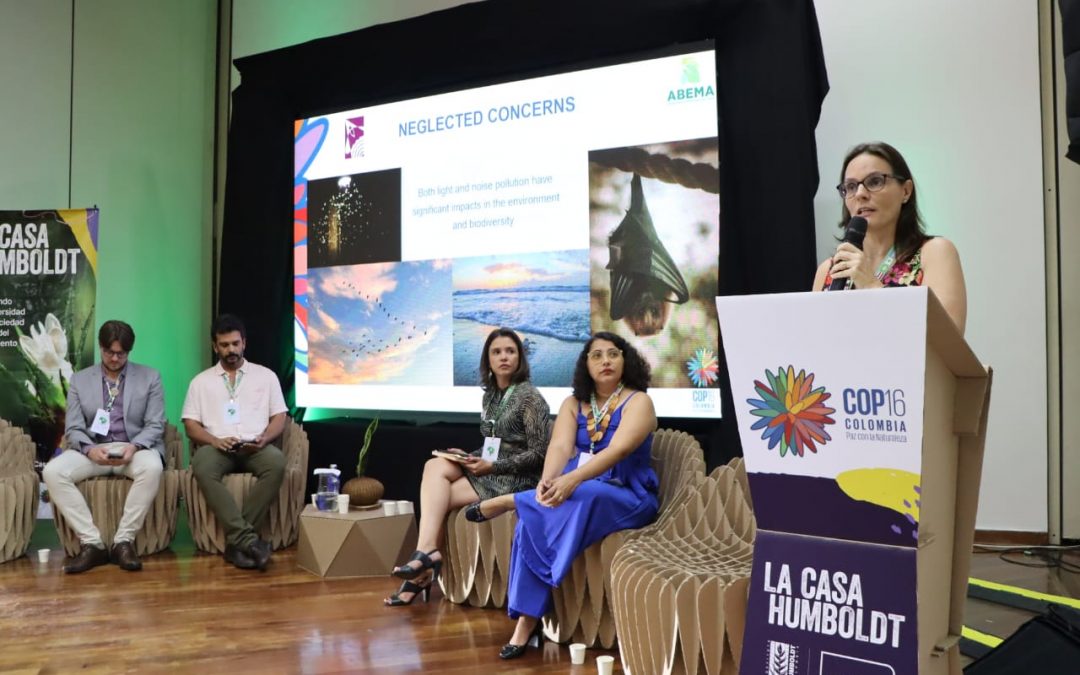Brazilian researchers who are members of the PLAN-B consortium, professors Camila Palhares Teixeira and Alexandre Túlio Amaral Nascimento, from the Department of Biological Sciences (DCBio), at the State University of Minas Gerais (UEMG), Ibirité Unit, presented PLAN-B and the topic of light and noise as neglected pollutants on two separate occasions during the extensive program of COP 16 on Biodiversity, which took place between October 21 and November 1, 2024, in Cali, Colombia.
On both occasions, the professors presented the PLAN-B Project, highlighting light and sound as neglected pollutants, encouraging and motivating participants to include them in their strategies and action plans (national, state, local or institutional) to meet target 7 of the Global Biodiversity Framework.
On October 22, the presentation took place in the Blue Zone of COP 16, at Plaza Quebec, in the “subnational and local authorities” space. Representatives of important research funding agencies from Brazil and from the world, as well as environmental secretaries from Brazilian states, participated in the same panel. At that same day, in addition to professors Alexandre and Camila, the master’s students in Analysis and Modeling of Environmental Systems at the Federal University of Minas Gerais (UFMG), Janaína Aguiar and Juliana Magno, had the opportunity to present on the pilot areas of PLAN-B in Brazil.
On October 28, the presentation took place in the Green Zone, at the Humboldt Institute, where “ABEMAs Biodiversity Day” took place. Throughout the day, the event brought together, in four panels, themes and discussions representing the work being developed by the Technical Chamber of Biodiversity (CTBio) of ABEMA, a Brazilian association that brings together state environmental entities from all states of the Brazilian federation. The presentation took place in an auditorium packed with authorities (national and state) and leaders in the environmental area, especially from Brazil.

The Brazilian PLAN-B team participated in COP 16 as collaborators of ABEMA, in the delegation of subnational and local authorities from Brazil. The participation was a good opportunity to raise awareness of the importance of including light and noise, forgotten and neglected pollutants, in the agendas, strategies and policies for biodiversity conservation.
In an agenda as fundamental as life itself, with so many challenges and urgencies, there is still much work to be done so that light and noise receive the necessary attention, as pollutants that should and can be mitigated and minimized, through research actions and the construction of appropriate public policies.

